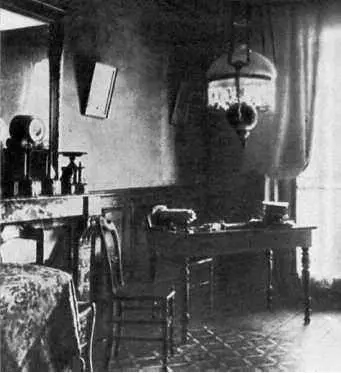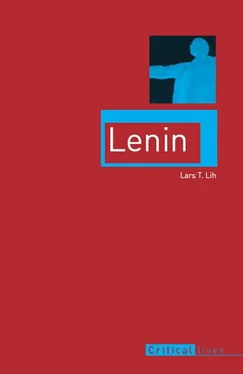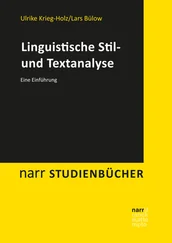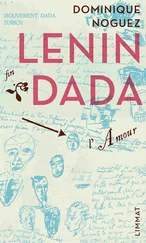Lars Lih - Lenin
Здесь есть возможность читать онлайн «Lars Lih - Lenin» весь текст электронной книги совершенно бесплатно (целиком полную версию без сокращений). В некоторых случаях можно слушать аудио, скачать через торрент в формате fb2 и присутствует краткое содержание. Город: London, Год выпуска: 2012, ISBN: 2012, Издательство: Reaktion Books, Жанр: Биографии и Мемуары, История, на английском языке. Описание произведения, (предисловие) а так же отзывы посетителей доступны на портале библиотеки ЛибКат.
- Название:Lenin
- Автор:
- Издательство:Reaktion Books
- Жанр:
- Год:2012
- Город:London
- ISBN:9781780230030
- Рейтинг книги:3 / 5. Голосов: 1
-
Избранное:Добавить в избранное
- Отзывы:
-
Ваша оценка:
- 60
- 1
- 2
- 3
- 4
- 5
Lenin: краткое содержание, описание и аннотация
Предлагаем к чтению аннотацию, описание, краткое содержание или предисловие (зависит от того, что написал сам автор книги «Lenin»). Если вы не нашли необходимую информацию о книге — напишите в комментариях, мы постараемся отыскать её.
Lenin — читать онлайн бесплатно полную книгу (весь текст) целиком
Ниже представлен текст книги, разбитый по страницам. Система сохранения места последней прочитанной страницы, позволяет с удобством читать онлайн бесплатно книгу «Lenin», без необходимости каждый раз заново искать на чём Вы остановились. Поставьте закладку, и сможете в любой момент перейти на страницу, на которой закончили чтение.
Интервал:
Закладка:
Ebb-tide of Revolution
The ebbing of the revolutionary tide was dramatically reflected in the fates of the Social Democratic representatives in the Second Duma in 1907. The police had prepared a list of charges against the Duma members that also reads like a bill of indictment against the revolution itself:
In 1907, in the city of St Petersburg under the name of the Social Democratic Duma delegation, the accused formed a criminal society, the aim of whose activity is the violent overthrow, by means of an armed popular uprising, of the form of government established by the Basic Laws, the removal of the sovereign Emperor from supreme authority and the constitution of a democratic republic in Russia. 19
Among the specific charges were ‘relations with secret criminal societies calling themselves the Central and Petersburg Committees of the RSDWP’; attempts to organize peasants, workers and soldiers into secret associations and to connect up these groups up among themselves; giving inflammatory speeches to illegal gatherings of workers; and providing false passports for people eluding police supervision. 20All these charges were true, of course. The government demanded that the Duma revoke the legal immunity of its Social Democratic members. The Duma refused and found itself revoked, that is, disbanded and replaced by a new legislature by means of Stolypin’s coup d’état of 3 June 1907. This date can be taken as the end of the revolutionary period, since the restrictive suffrage and the repressive policies of the ‘third of June system’ forced most party activity back underground.
The next few years were dismal ones for the party underground. Based on informer reports, a top official in the tsarist political police, Aleksandr Spiridovich, summed up the woes of the underground: ‘Systematic arrest of party activists, indifference on the part of workers toward the revolutionary work that had just recently been so popular, mass flight of the intelligentsia that joined forces with the party during the years of revolutionary upsurge, a lack of the financial means that had flowed so plentifully into party coffers not so long ago – all of this meant that local organizations fell apart.’ 21
Spiridovich modestly left out another huge problem facing the underground, one that represented a signal accomplishment of the political police: ‘provocation’, the infiltration of underground organizations by police informers. The resulting atmosphere was described in 1911 by Bolshevik Gregor Alexinsky, one of the Social Democratic Duma delegates sentenced to hard labour. After escaping to Europe, he observed from afar the effects of the ‘treason’ committed by disillusioned praktiki : ‘Then [after 1907] commenced a period which in all truth saw “brother turned against brother”, when the breath of treachery poisoned the atmosphere of the revolutionary organizations, and provocation acquired so extraordinary a power that a mutual distrust eventually seized upon all their members. The dismemberment of the organizations followed.’ 22
Having left Russia at the end of 1907, Lenin was again in exile. He and Krupskaya lived in Geneva for another year and moved to Paris at the end of 1908. But wherever his residence, Lenin lived the intense but self-absorbed life of the party intellectual: engaging in endless polemics with factional opponents, preparing resolutions for party congresses, and then arguing about the proper interpretation of official party decisions. These intra-party fights easily degenerated into the squabbles that Russians describe with the eloquent word skloki – the insupportably petty and demeaning infighting that sucked up the time and energy of the émigrés. Krupskaya tells us that Lenin was made physically ill by the atmosphere created by skloki . Yet, from the point of view of his opponents, Lenin himself was no mean hand at infighting and hard-line factionalism.

Lenin’s life during these years can be – and most often is – described solely in terms of party factional struggles. Some biographers portray Lenin as compulsively seeking exclusive party leadership for himself, by fair means or foul. Others portray him as defending the correct party line against all deviations, whether from the right or the left. In either case the biographical landmarks are the same: a succession of party congresses and conferences, of polemical books and articles, of various campaigns against ‘organizational opportunism’, ‘liquidationism’, ‘recallism’ and similar heresies, seemingly without number.
But Lenin had an inner political life as well, one that lifted him above the day-to-day skloki and factional clashes. This was the life of his heroic scenario through which he interpreted events. Thus Lenin’s heroic scenario became the emotional link between the enforced smallness of his life and the largeness of the political events of the day. The obsessive factional skloki of émigré life acquired meaning because Lenin saw himself as facilitating the emergence of the vast energies of the people. Lenin wanted to inspire the activist to inspire the proletariat to inspire the narod to rise up against the tsar, thus giving the whole world another inspiring example of how to carry out a people’s revolution.
Lenin’s political positions in the intra-party factional infighting followed from his commitment to his heroic scenario. He first insisted that the Social Democrats should keep their eyes on the prize and not retreat from their ambitious goal. This goal was ‘democratic revolution to the end’, and that meant full political freedom. The result – a paradoxical one from our present-day vantage-point – was that the Bolsheviks criticized the Mensheviks for cravenly accepting the few thin slices of political freedom available in Stolypin’s Russia rather than demanding the full loaf.
The Mensheviks proposed that the workers focus on attainable goals, for example, achieving a crucial political freedom such as freedom of association. The Bolsheviks agreed that freedom of association was indeed crucial, but insisted that it meant nothing in isolation. As the Bolshevik Lev Kamenev put the case, ‘A Marxist should say to the worker masses who have learned from experience the need for freedom of association: freedom to strike, freedom of unions – these are empty words in the absence of inviolability of person, freedom of speech, or freedom of the press. Freedom of association is tied to the basic and fundamental conditions of the country.’ 23
Kamenev’s words need to be decoded, since he was writing at a time (1913) when the Bolsheviks had access to legal publication. He therefore resorted to Aesopian language meant to get past the censor. ‘Marxist’ stood in for ‘Social Democrat’, and the phrase ‘basic and fundamental conditions of the country’ pointed to the need for revolution. Kamenev’s real message was that there was only one way to get secure freedom of association: a full-scale, revolutionary assault on tsarism in order to introduce the full gamut of political freedoms.
As before, the only way to achieve this ambitious goal was through a vast people’s revolution. Menshevik attempts to find allies among the elite liberal bourgeoisie were doomed to failure, since the liberals mortally feared ‘the revolutionary whirlwind’ and would therefore always stop short and sell out the revolution. Daunting as the task seemed, proletarian leadership of the narod was the only way to carry out revolution ‘to the end’: ‘A peasant revolution under the leadership of the proletariat in a capitalist country is difficult, very difficult, but it is possible, and we must fight for it. Three years of the revolution have taught us and the whole narod not only that we must fight for it but also how to fight for it.’ 24
Читать дальшеИнтервал:
Закладка:
Похожие книги на «Lenin»
Представляем Вашему вниманию похожие книги на «Lenin» списком для выбора. Мы отобрали схожую по названию и смыслу литературу в надежде предоставить читателям больше вариантов отыскать новые, интересные, ещё непрочитанные произведения.
Обсуждение, отзывы о книге «Lenin» и просто собственные мнения читателей. Оставьте ваши комментарии, напишите, что Вы думаете о произведении, его смысле или главных героях. Укажите что конкретно понравилось, а что нет, и почему Вы так считаете.












